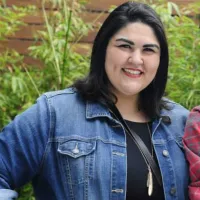Diversity Spotlight: One on One with Diane Barber
Dr. Diane Barber is an Endowed Professor and Chair in the UCSF Department of Cell and Tissue Biology. Students in a number of graduate programs know Diane as the Director of the BMS260 Cell Biology core course. She earned a BS in Biological Sciences and an MS in Physiology from UC Davis, and completed her PhD in Anatomy from UCLA. After four years as an Assistant Professor at Yale University, she joined the UCSF faculty 25 years ago. She heads a cell biology lab investigating how intracellular pH and actin filament dynamics regulate cell behaviors, with a focus on cancer cells and epithelial plasticity at molecular, cellular, and tissue scales. In January, she became the chair of the international Women in Cell Biology Committee (WICB) within the American Society for Cell Biology (ASCB). The following is a lightly edited transcript from an interview with Diane Barber.
While the representation of women in STEM careers has steadily increased over the years, women are still underrepresented at the leadership levels of academia and industry. What has been your experience as a leader? Do you have any advice for future leaders?
As an avid baseball fan, I’m reminded of the adage that the playing season is a marathon and not a sprint. I’ve developed to the stage of being honored with leadership positions, but also I was in no hurry to arrive at this stage. Sitting at the table and having your voice heard is not gender-dependent, but as a woman it has taken more resiliency than I anticipated and taught me that woman leaders need to be extra vigilant and clear in their communications. Women leaders are expected to play a multitude of roles: visionary, competent facilitator, encouraging cheerleader, understanding and compassionate administrator, and hard-nose negotiator.
Although working through a group process is a learning experience, making progress toward addressing issues is tremendously rewarding. My initial reservations about the daunting task of becoming the Chair of Women in Cellular Biology (WICB) were alleviated by knowing I would be working with a group of energetic and committed women and men toward advocacy in promoting diversity, gender equality and career development in the field of cell biology.
One exceptionally useful initiative by WICB is a vetted speaker referral list that can be used for scientific meetings, scientific review panels, and university symposia to promote a balanced gender representation (http://www.ascb.org/wicb-speaker-referral-list/ ). The list, which is searchable by name, research topic, or institution, facilitates identifying outstanding women scientists for gender equity at the podium or in review processes. There remain many challenging issues, particularly regarding diversity and gender equity in STEM, and it is important for all of us at all stages of our career, not just at the leadership stage, to be advocates and instruments for change.
The life of a scientific investigator is wonderful and challenging but is not without drawbacks. Is there anything that has been a particular challenge to you? How did/do you cope with it?
I guess this question is directed toward the buzz of “work-life balance” but I view my work and life as integrally connected. Moreover, I strongly believe that our profession is ideally suited for raising a family (or for other chosen life pursuits) because of our time flexibility. When I came to UCSF 25 years ago, our daughters were 4 and 1. It was surely challenging and I was chronically sleep deprived. But when they were young, my time flexibility allowed me to volunteer in their classrooms, drive on field trips, and attend their swim meets and soccer matches — although I then stayed up late into the night working on a manuscript or grant application. When they were teenagers and with no surprise no longer wanted us in their classrooms, my husband and I started coaching swimming for Special Olympics, which we’ve now done for 12 years. Claire, our oldest, recently completed her graduate degree in Bioinformatics and Epigenetics at the University of Washington and Lauren, our youngest, completed her BA at UCLA and is now a law student at UC Irvine.
Tell me a little bit about your background before science.
I grew up in the central valley of California in a very large (I have 23 first cousins), extended Armenian family. I have wonderful memories of balmy summer evenings playing baseball in fields surrounded by the grape vineyards of my grandparents’ farms. My parents were born in the US, but as first generation immigrants coming of age during the Depression of the 1930s, they were unable to attend college. However, we laugh that they spawned something of a higher education bug. Four of us are now college faculty: in addition to me, my brother (Virginia Tech), and my sister’s daughter (University of Washington) and son (Skyline College).
What first motivated you to pursue science?
I wasn’t in the breed of those with an early vision of a career direction. Curiosity drew me to science. Intellectual challenges and the occasional adrenaline rush of discovery drew me to investigative research. As an MS student, an endocrine seminar series sparked my interest in cell signaling, and I pursued a PhD which focused on how cells respond to chemical cues and is related to questions we’re still addressing. Those in my current lab group know the discovery beast remains strong. Even after over 25 years in a faculty position, I continue to work at the bench.
Is there anything about being or becoming a professor that was surprising or unexpected to you?
Looking retrospectively some things are different that I anticipated, such as increasingly more work and less “free” time as my career progressed (sorry to disappoint graduate students and postdocs who believe this is the hardest they’ll work). Also, as a graduate student thinking about a research career, I worried about running out of ideas, but now I actually face too many questions that I want to pursue. The most surprising was that I never imagined the excitement and fun of discovery could be sustained for this long.
What is your favorite part of being an academic scientist?
Working with exceptionally bright, curious, and creative faculty, fellows, and students. It just doesn’t get any better than brainstorming about a problem in science, sharing ideas, and formulating approaches to address questions. Also, collaborations on research projects, especially across disciplines, are terrific ventures. Amidst this is the enjoyment of mentoring junior investigators in both research and career development.
What do you think are the biggest challenges in advising new young scientists today?
One is encouraging junior investigators to maintain a sense of enthusiasm, wonderment, and resiliency amidst the many challenges they face, regardless of the career path they choose. Second, with a graduate degree in biomedical sciences, that there are many career paths of comparable importance for contributions. Third, for junior investigators with an academic faculty career objective, the challenges of limited position openings, extreme competition, and the current poor extramural funding climate are daunting, which makes item one particularly important.
What is the best advice you ever got?
When making a decision, choose directions that keep the most “doors open.” This came from my wise husband who (as a criminal defense attorney) has kept me cognizant about the ambiguities of life. For example, during graduate school at UCLA, I taught night courses in Anatomy at Santa Monica City College. As I completed my PhD, I was uncertain about pursuing a research career. Although I had received an NIH postdoctoral fellowship award, an offer from Santa Monica City College for a full-time faculty position was very enticing. But realizing that a postdoc would maintain more “doors open”, even if I subsequently returned to full-time teaching, guided my choice and we moved to Boston for my postdoc. I have absolutely no regrets.
Other advice I’ve learned through trial and error is the importance of resiliency, particularly in this very brutal but exhilarating profession.



